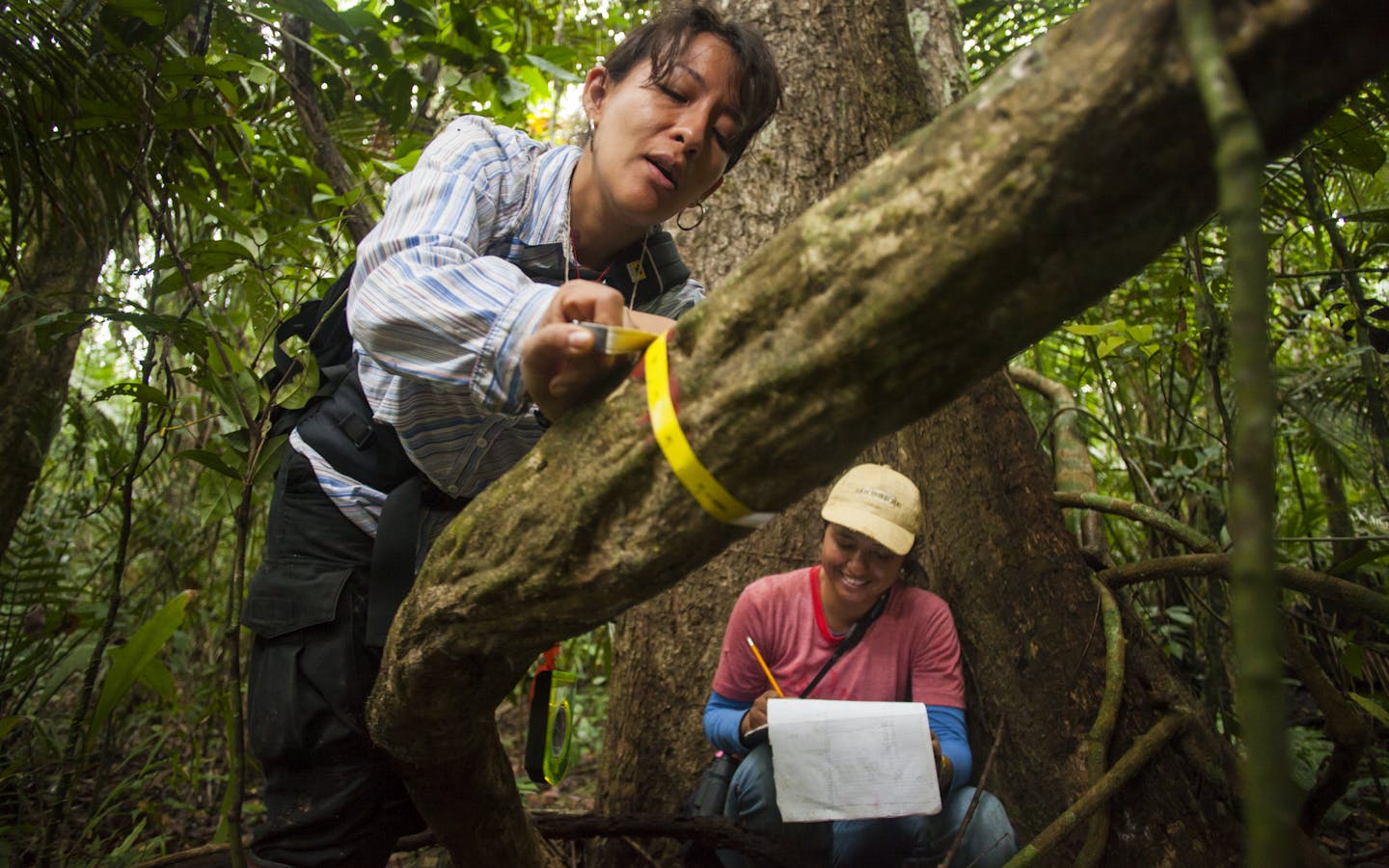Explore our science
Our science produces insights that help governments, communities, businesses and others to value and protect nature.
The Betty and Gordon Moore Center for Science and Solutions is the research hub at Conservation International. Its goal is simple: to conduct science that helps conservation go faster and have greater impact. The center’s team of over 40 scientists works with colleagues in the field, traditional knowledge holders, communities and partners to generate the knowledge needed to drive action for people and nature.
To address the climate and biodiversity crises, we are accelerating and scaling up science, equipping decision-makers to drive conservation and delivering innovations that amplify impact. Our research, tools and solutions support ambitious global goals — from protecting critical ecosystems that absorb climate-warming carbon to sustaining marine fisheries and building conservation-based economies where they matter most.
Our Science
Our research drives transformative change: guiding conservation priorities, providing critical information to decision-makers and ensuring our work delivers tangible outcomes for nature and people.
Nature is critical to solving the planet’s most pressing challenges. Our scientists are helping protect and restore nature at an unprecedented speed and scale by identifying how to reach our goals with greater ease and efficiency.
Knowledge accelerates our ability to conserve nature for its many benefits. Our scientists’ research and tools provide vital information that’s used by communities and decision-makers to protect the nature they depend on.
Evidence of what works — and what doesn’t — is crucial for tackling the world’s most urgent environmental challenges. Our research drives accountability, fosters consensus among decision-makers and informs smarter actions for the planet.
We call ourselves Team Science because we are here to support the needs of our colleagues and communities around the world. Together, we ensure that science and innovation are the foundation of conservation so that we reach our vision of a planet where people live in harmony with nature.
Dr. Stephanie Wear
Senior Vice President, Betty and Gordon Moore Center for Science and Solutions
Global Impact
Our scientific findings inform and inspire policies and investments by Conservation International, donors and the public and private sectors — from local communities to global decision-makers. We publish high-impact research that is used to inform environmental initiatives around the world well beyond the boundaries of the places we work.
Check out our research library to learn more about the work we are doing.

